Review: LIFE OF GALILEO Looks To The Past As A Reminder That We Need To Stop History Repeating Itself
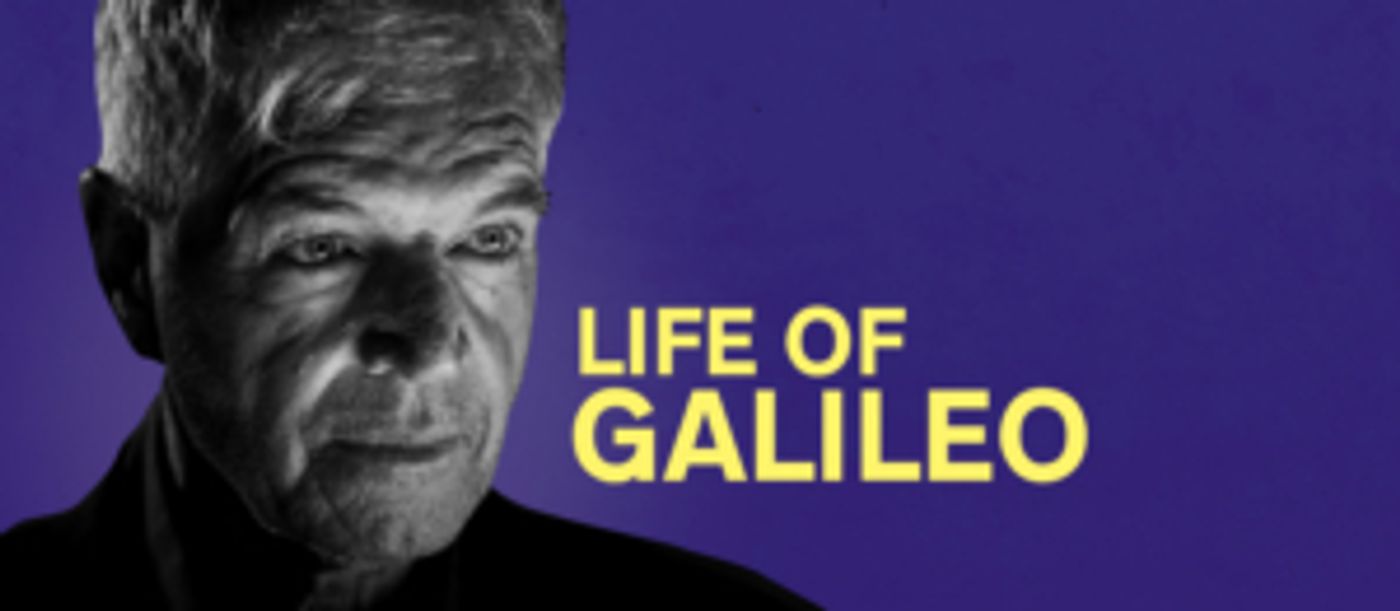
Wednesday 7th August 2019, 7:30pm, Belvoir St Theatre
Bertolt Brecht's LIFE OF GALILEO is given a modern makeover in Tom Wright's adaptation, directed by Eamon Flack for Belvoir St Theatre. In a time where world leaders and big business are continuously seeking to discredit scientific discovery and any other fact based truth, this presentation of the roadblocks and persecution that Italian polymath Galileo Galilei (Colin Friels) suffered for his science is unfortunately still relevant.
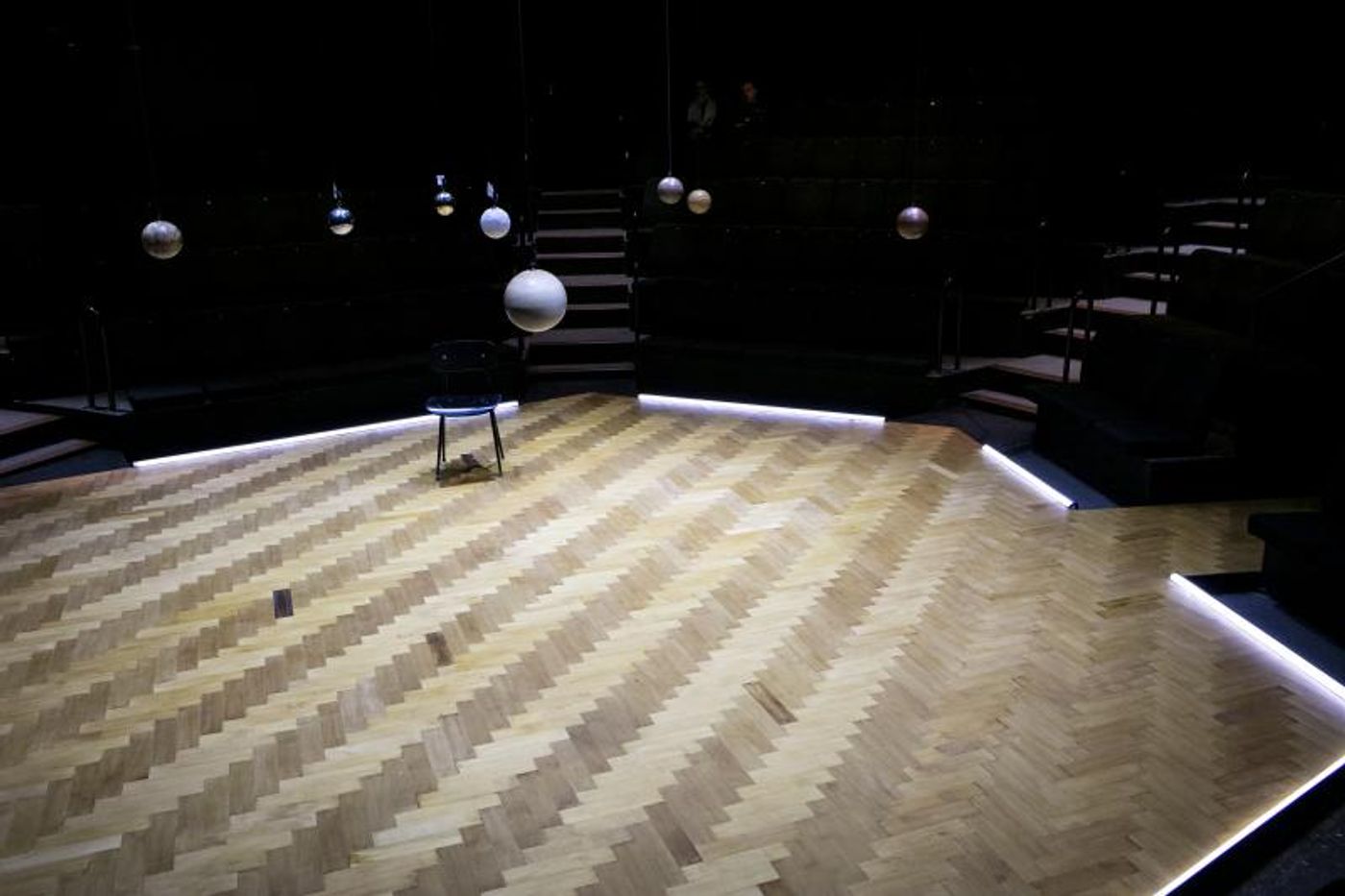
Originally written in Brecht's native German in 1938 and revised in English in 1947 and again in 1955, LIFE OF GALILEO follows the Father of Observational Astronomy's life from the age of 45, when he starts disprove Ptolemy's earth centered universe in favor of a sun centric Heliocentrism ,to 73, when under house arrest his manuscript for his final book, Discorsi, or The Discourses And Mathematical Demonstrations Relating To Two New Sciences is smuggled out of the Papal States for eventual publication in the Netherlands. Whilst teaching mathematics, mechanics and astronomy at the University of Padua he supplements his income tutoring private students including Andrea (Vaishnavi Suryaprakash), a precocious and inquisitive character who is quite content to learn about whatever Galileo wishes to share despite the fact that she is supposed to be learning mathematics. An encounter with a prospective student, playboy and horse racing gambler Ludovico (Damien Strouthos), he sees a solution to his financial concerns with the stories of a device for seeing distant things. Whilst the university and Italian power players are pleased with his inventions that progress commerce and military endeavors, they aren't as happy when he challenges the teachings of the church, particularly their teachings that the earth is the center of the universe. His findings come to the attention of the Vatican and he is put on trial as part of the Roman Inquisition in 1616 and forced to recant his findings in order to save his life, thereby also forcing him to ostensibly cease his research.
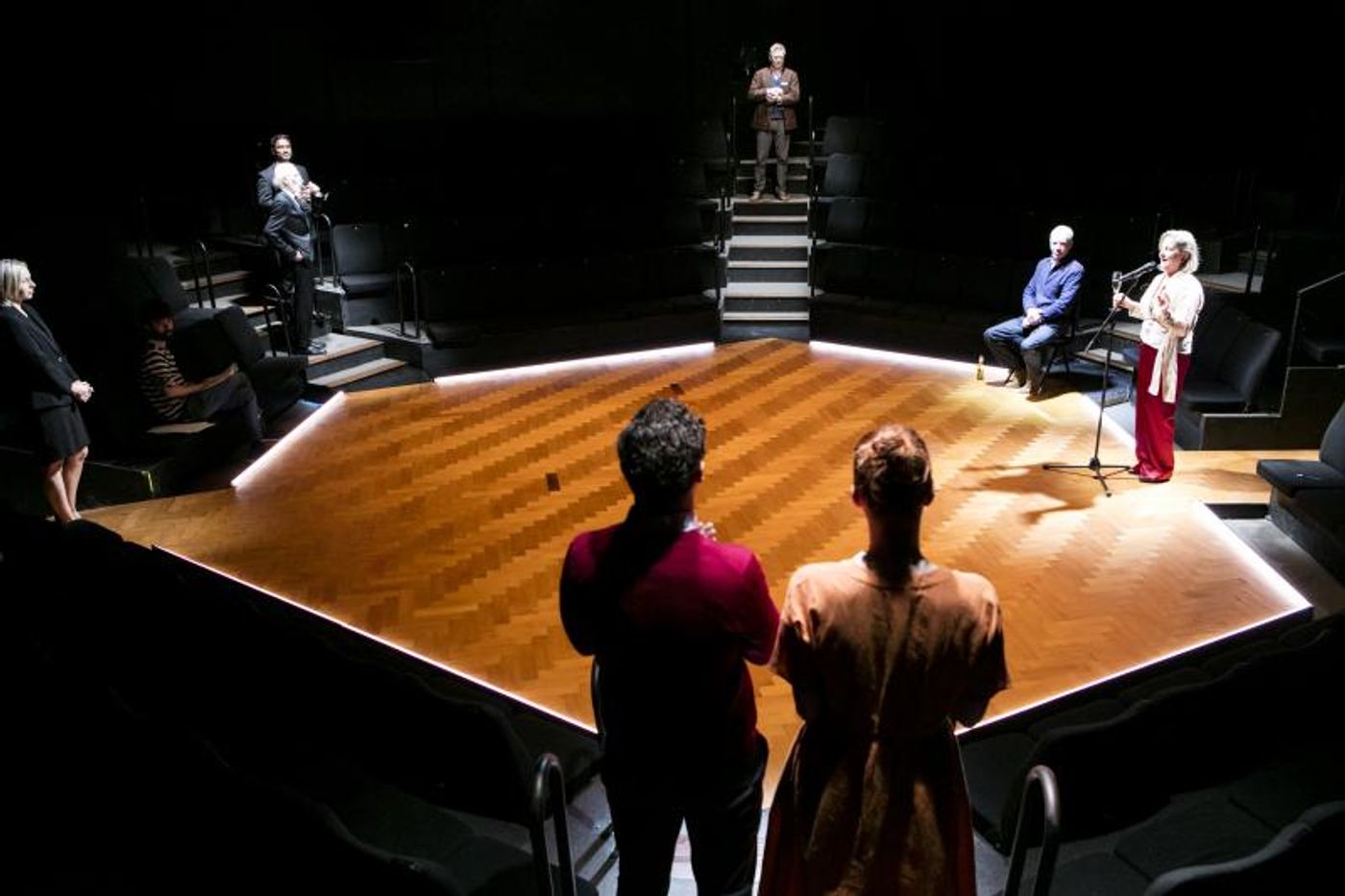
As with Belvoir's staging of EVERY BRILLIANT THING earlier this year, the upstairs theatre has again been transformed into an in-the-round theatrical experience to echo Galileo's studies of celestial orbits, with Galileo being the center around which this production revolves. Zoë Atkinson's raised parquetry stage is bordered by Paul Jackson's (lighting design) LED strip lighting. Above three sides of the banks of audience large screens wait to present the titles, times and places of the 16 scenes that unfold. The key design element remains hidden until Friels introduces it with the aid of a wall mounted winch at the start of the first scene and it is beautiful in its simplicity and contemporary aesthetic whilst still remaining connected to Brecht's original story with wooden components. Paul Jackson's lighting design dims to blue led accents in the darkness for scene changes and is punctuated by Jethro Woodward's sound design and compositions. Heavy disco beats and imposing tones are incorporated into the work to present a driven sound that is felt as well as heard as it reverberates through the seating.
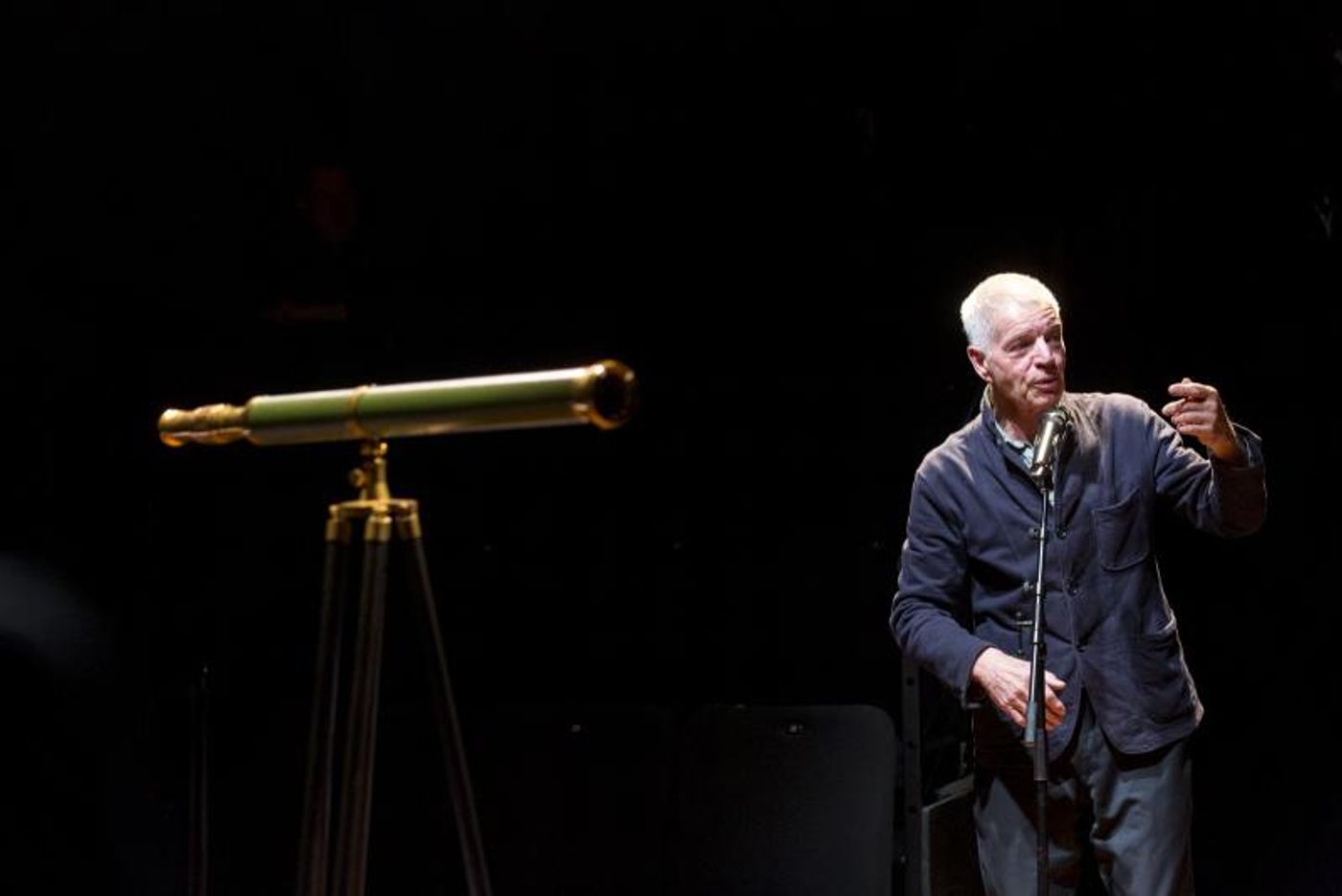
Atkinson keeps the costuming equally simple and modern with Galileo presented in somewhat casual blazer and baggy pants, reminiscent of the science academics of your BWW Reviewer's past that were more intent on research than fashion. Andrea's growth from schoolgirl to young scientist is conveyed with the transition from uniform dress to casual clothes while the similar aged obnoxious brat Grand Duchess (Miranda Parker) is presented in sequin tracksuit evolving to sleek sophisticated suit. Government and Vatican security agents are presented in simple blacks while Cardinal Barberini (Peter Carroll) is presented in the traditional red trimmed black robes which are later swapped for the Pope's white vestments.
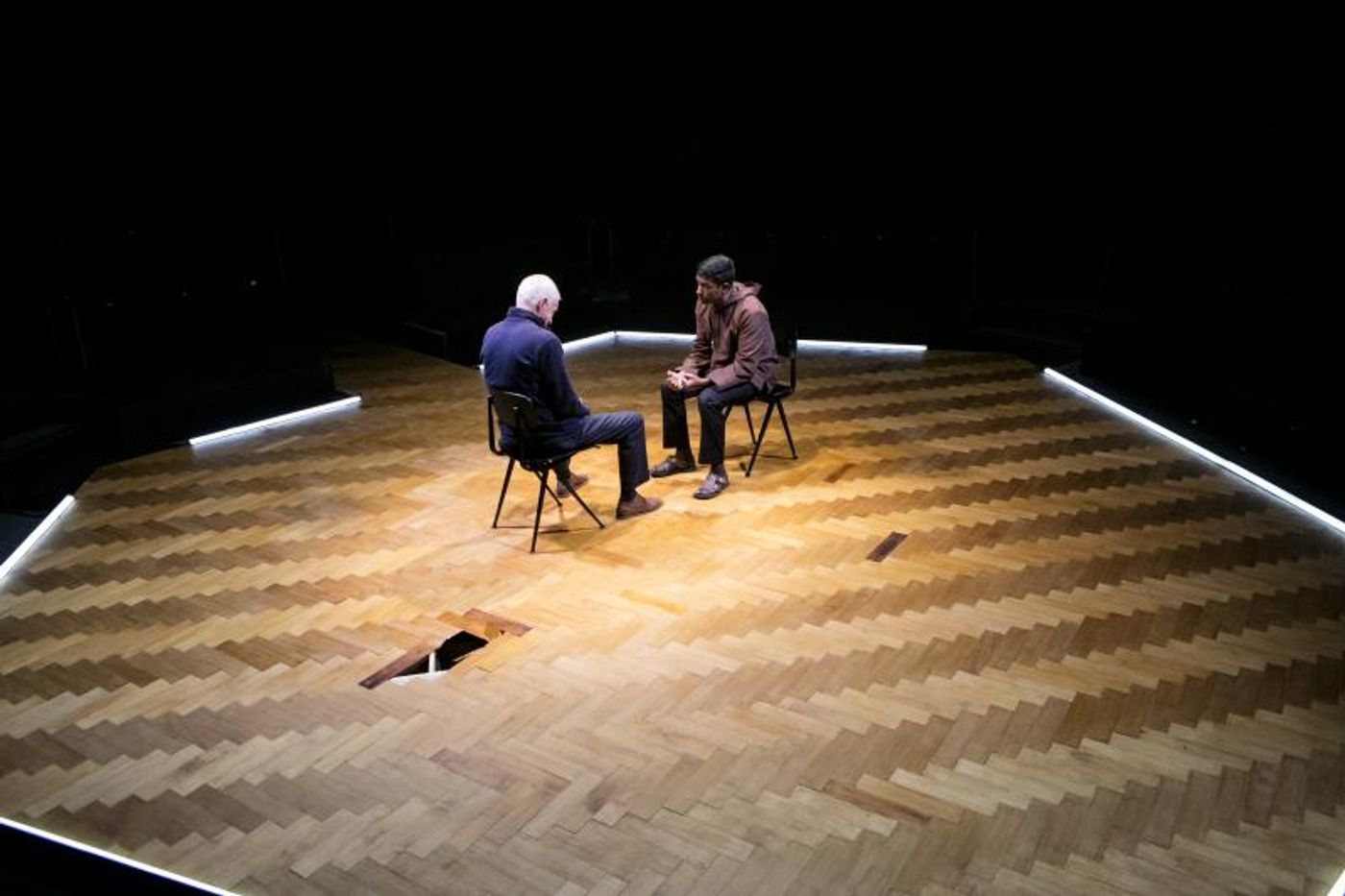
In keeping with Brecht's style Flack keeps the work simple, allowing the text to drive the story. This contemporary work has appropriately opted to swap the genders of many of the characters to allow a better representation of contemporary academic and corporate structures while still retaining the patriarchy of the catholic church. Contemporary spaces are implied through how events are expresses, from champagne fueled cocktail parties to pumping discos while the underlying social structures of early 17th century Italy, heavily governed by the Catholic church and wealthy families remain as the work remains an expression of history.
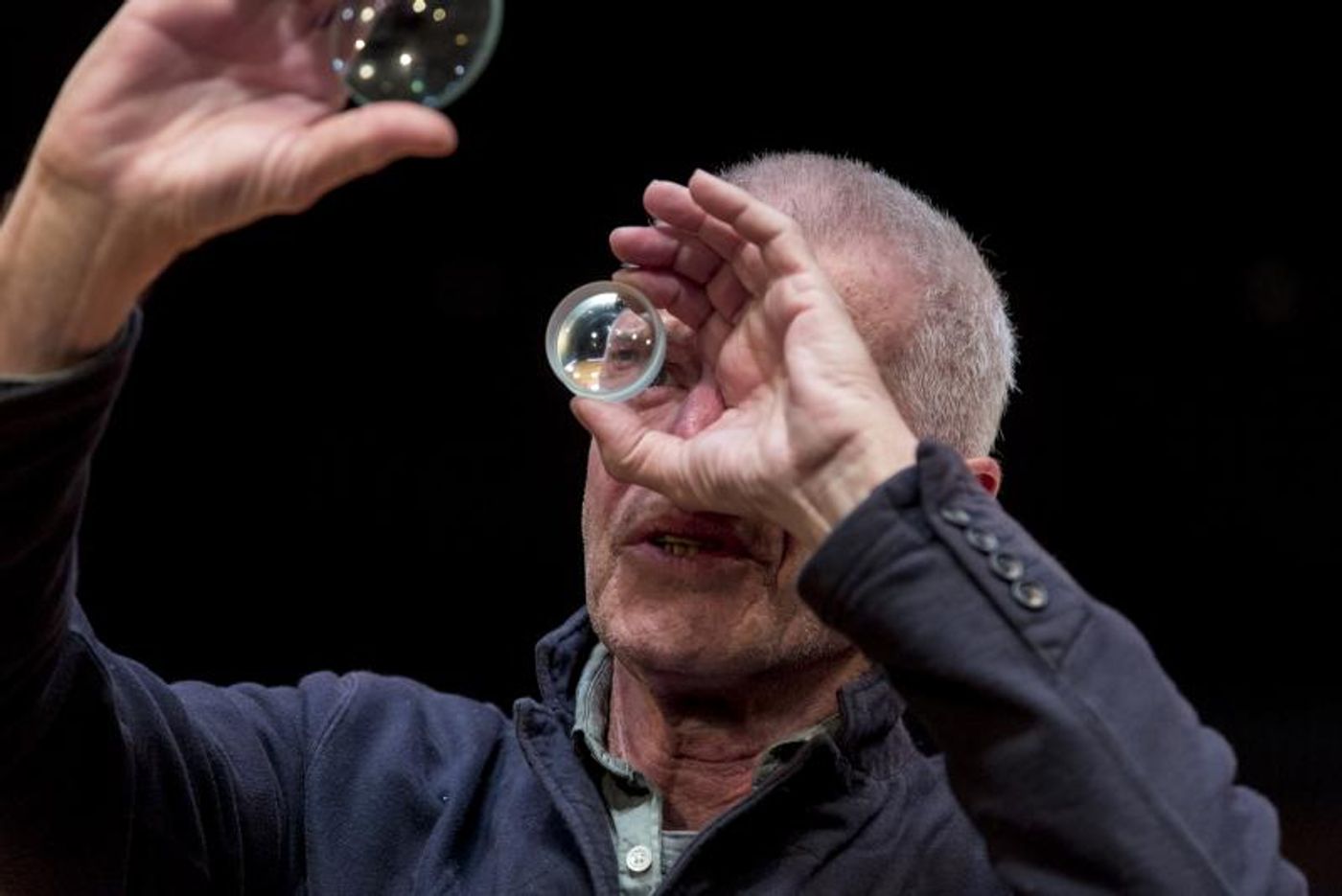
Friels is captivating as the passionate scientist, delivering the text, updated with modern references, with a casual ease to give them a fluid though and realism. There is a dogged determination intermingled with a seeming naivety that blinkers Galileo from accepting that he can and will be punished for going against the church. His physicality expresses the capriciousness of Galileo's thoughts that bounce from idea to idea as he utilises the full space while realizing when to provide pensive stillness in contrast to the movement.
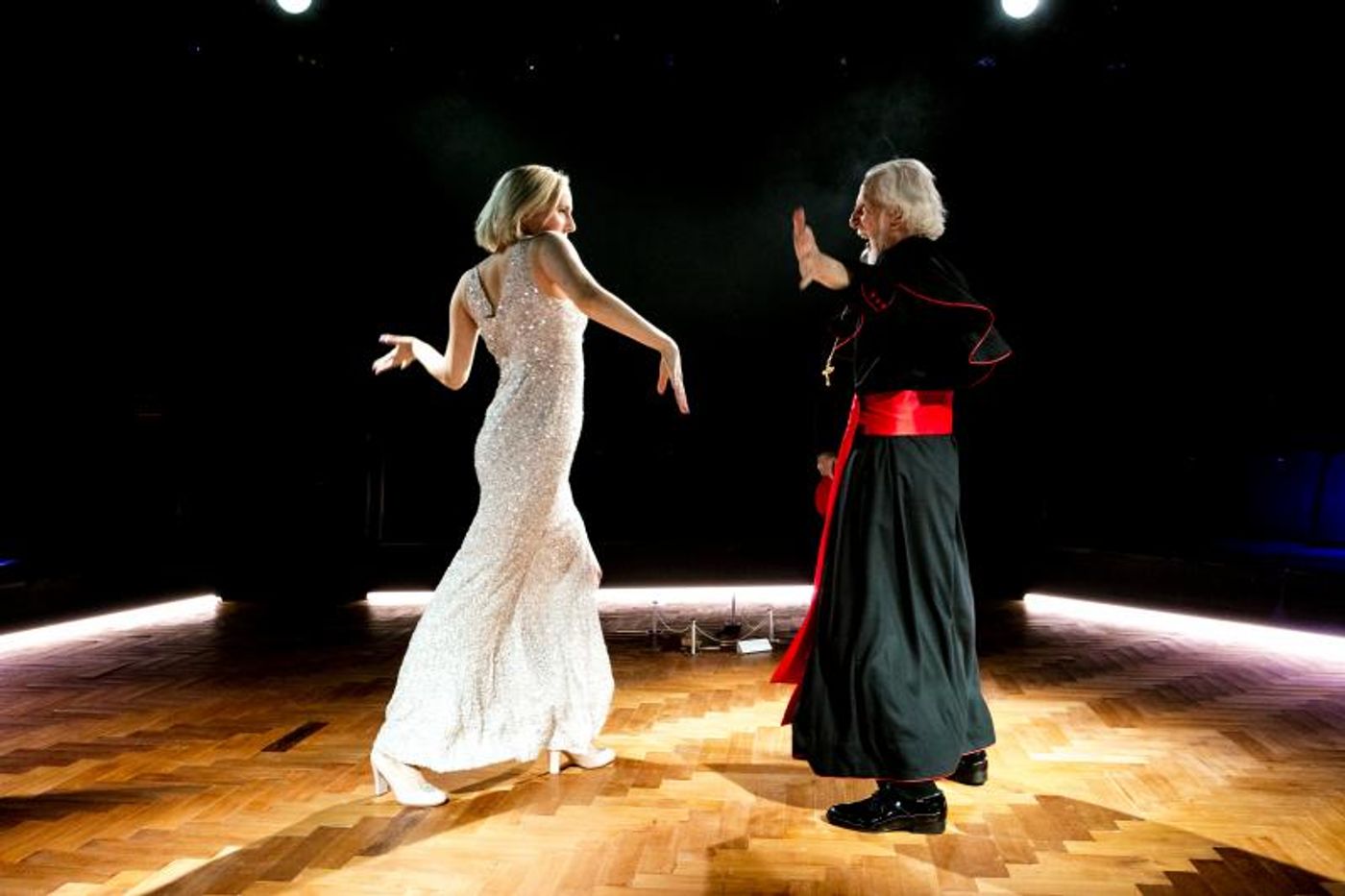
As Galileo's core supporter and student Andrea, Suryaprakash exhibits the transition from school girl to academic adult with a solid expression that ensures she is seen as a strong enquiring mind with a strong sense of what is right. The development from somewhat skeptical youth to engaged student and committed science advocate ensures that her disappointment when Galileo recants is even more powerful. The degree of Andrea's dedication to science is contrasted with Galileo's daughter Virginia's change in support for his science when she fears he will be killed for his discoveries. For opening night understudy Laura McDonald stepped into the role of Virginia, delivering a clean presentation of the more reserved young woman who goes on to look after her father when her prospects of marriage are destroyed forever.
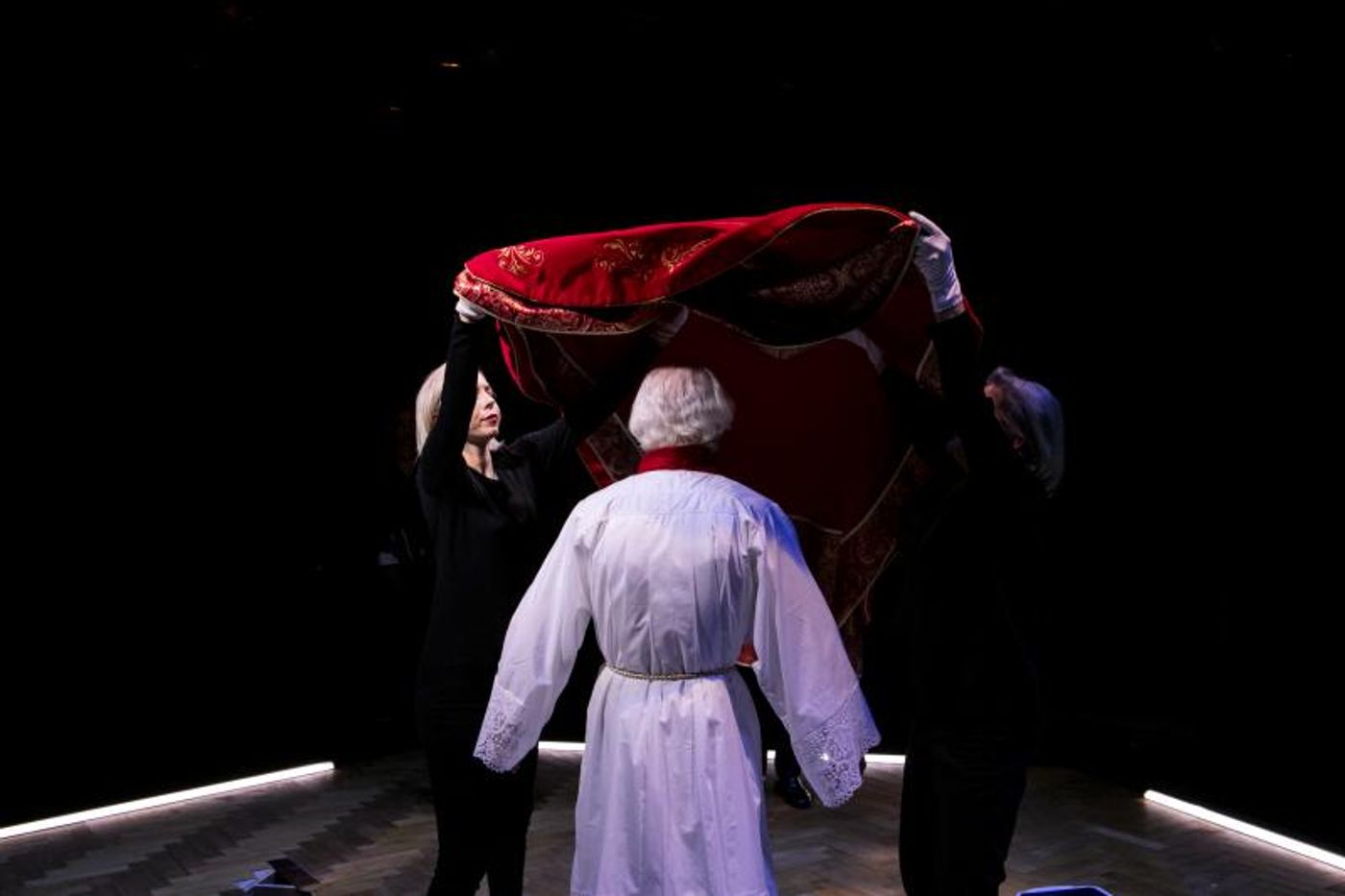
The other stand out performance comes from Peter Carroll as Cardinal Barberini who is later elevated to the position of Pope Urban VIII. He provides absurd comic relief as the partying primate dancing with the Grand Duchess which ensures his transition to Bishop of Rome stands out as donning not just the garments of office but also the weight of the control the Vatican has on the people of Italy.
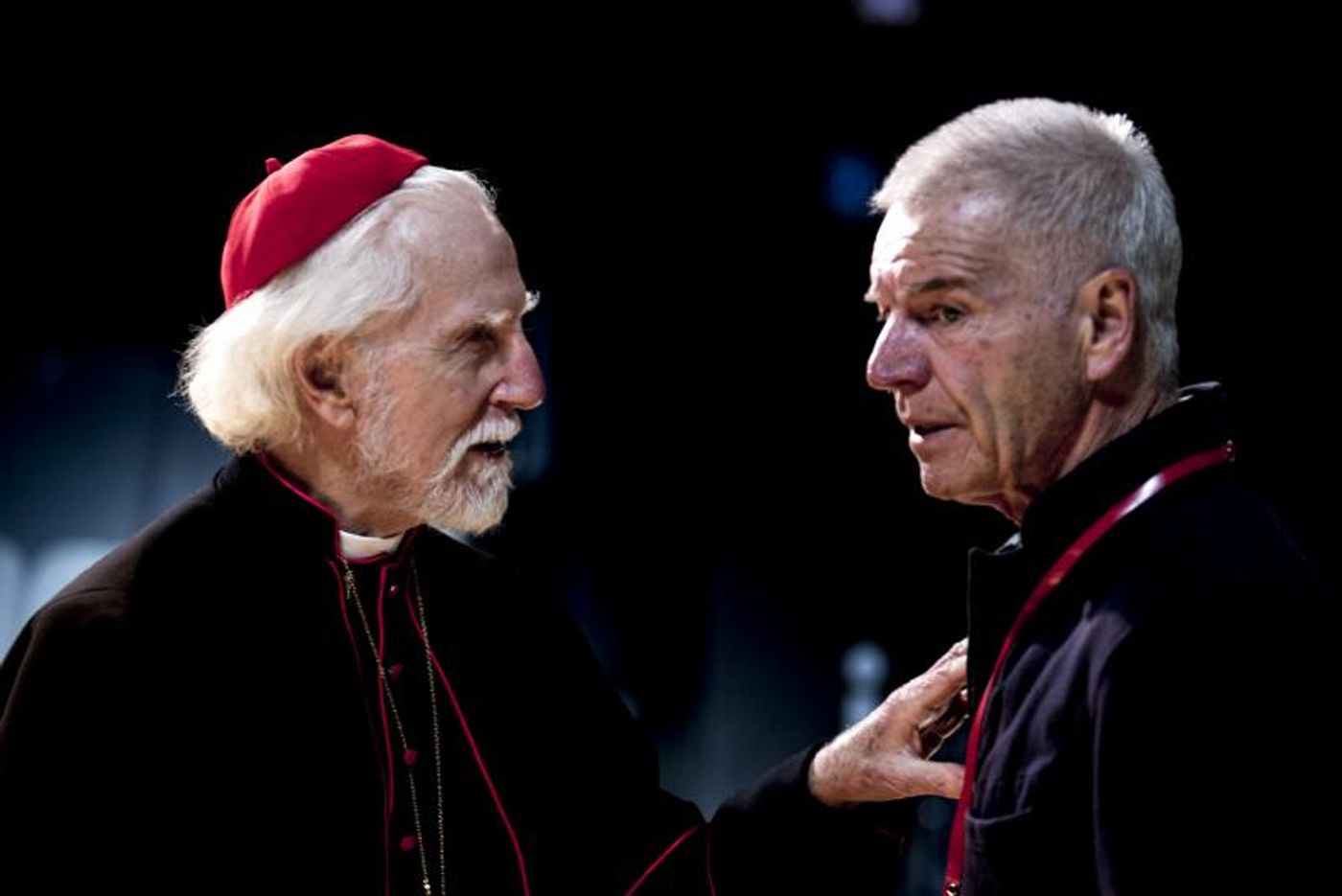
While some parts of the 16 part performance lag a little, this work generally has a good pace with a variety of styles and the inclusion of some good sight gags to keep it interesting and it is a treat to see Colin Friels create a captivating academic. The 21st century needs works like LIFE OF GALILEO to help remind us that the world has been in this situation of ignorant and arrogant leaders that refuse to accept science before and that we as a collective society need to do something to ensure the facts are acknowledged and acted upon, regardless of any potential negative impact that big business may be trying to remove.
https://belvoir.com.au/productions/life-of-galileo/
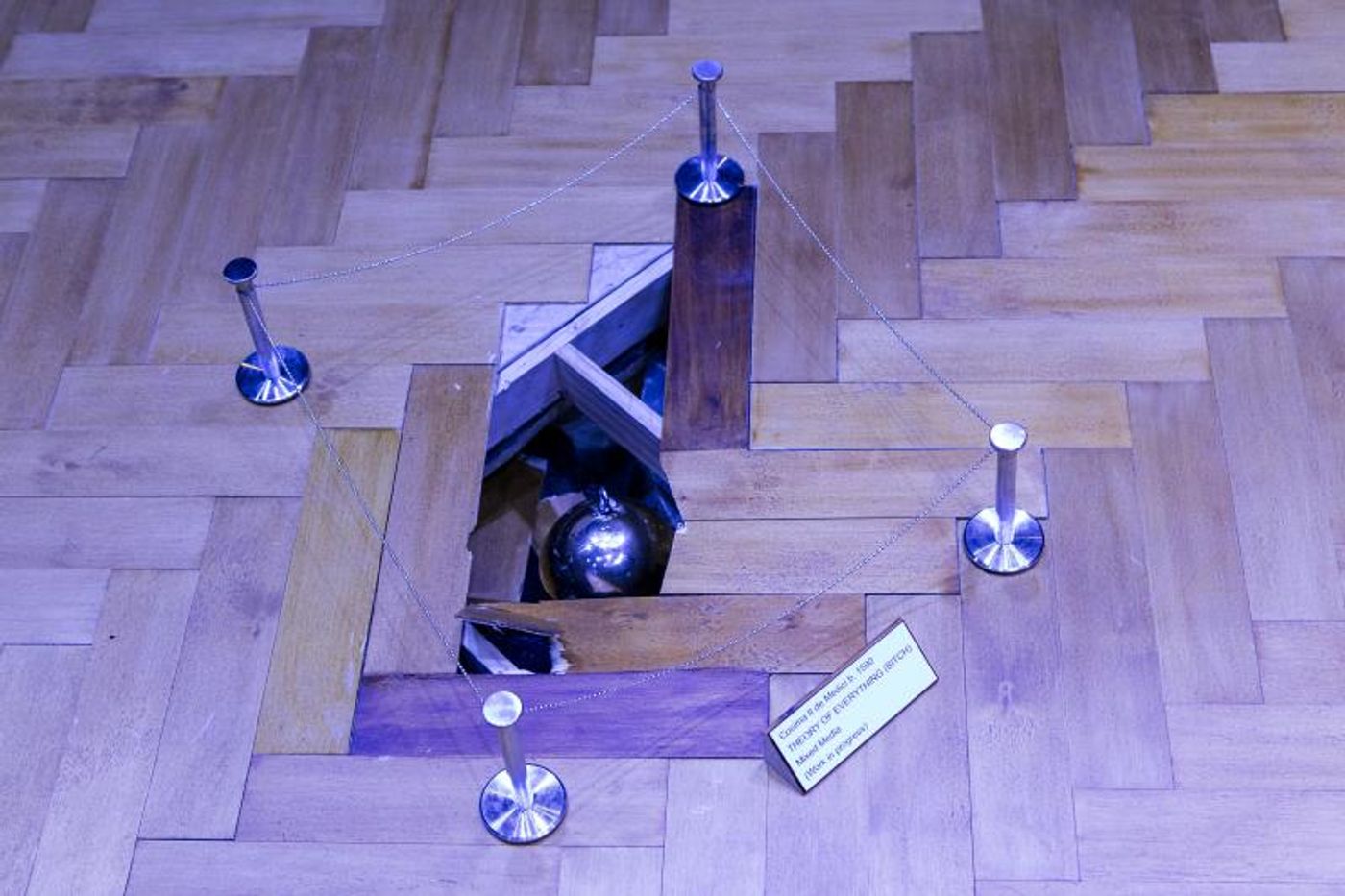
Videos

